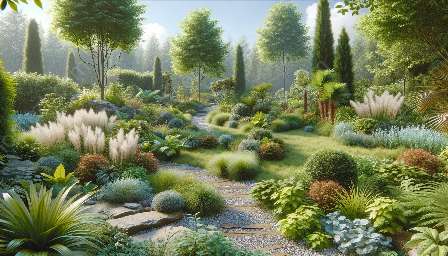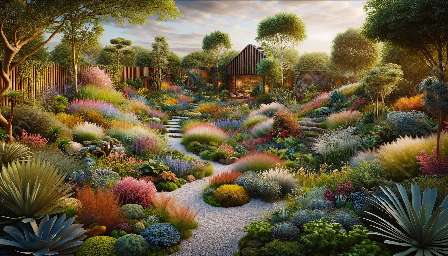Botany, the scientific study of plants, is a captivating and essential aspect of gardening and landscape design. Understanding botany not only enriches our knowledge of plants and their behavior but also informs and enhances the way we create and maintain gardens, yards, and patios. In this comprehensive guide, we delve into the intriguing world of botany, exploring its relevance to garden design and its potential for transforming outdoor spaces.
The Basics of Botany
Botany encompasses a wide range of topics, including plant structure, growth processes, reproduction, and ecology. It involves studying the various types of plants, from flowering species to trees and shrubs, and understanding their unique characteristics, such as leaves, stems, roots, and flowers. By gaining insights into botany, garden enthusiasts and designers can make informed decisions about plant selection, placement, and maintenance, ultimately creating more vibrant and sustainable landscapes.
Plant Growth and Development
One of the most captivating aspects of botany is the study of how plants grow and develop. From germination to maturity, plants undergo intricate processes that are influenced by environmental factors, such as light, water, and soil conditions. Understanding these growth processes allows us to nurture plants effectively and design gardens that support their natural development. Whether it's planning a vegetable garden or creating a flower bed, a sound knowledge of botany is invaluable in achieving successful and thriving plant growth.
Botanical Diversity and Garden Design
The diversity of plants, shaped by their unique forms, colors, and textures, offers endless opportunities for creative garden design. By incorporating a range of botanical species, gardeners can create visually stunning landscapes that provide a harmonious blend of aesthetics and functionality. Whether it's utilizing native plants to enhance ecological balance or introducing exotic species for a touch of drama, botany serves as the foundation for designing diverse and appealing gardens.
Botany in Yard and Patio Design
Botanical elements play a crucial role in enhancing the appeal and livability of yards and patios. From container gardening to creating green walls and vertical gardens, the principles of botany can be utilized to transform outdoor spaces into lush, inviting retreats. Understanding plant requirements and growth habits enables homeowners to select and arrange greenery that complements their outdoor living areas, adding beauty and tranquility to their surroundings.
Plant Care and Maintenance
Botanical knowledge equips individuals with the skills to care for and maintain their plants effectively. By understanding the specific needs of different plant species, gardeners can provide optimal growing conditions, ensuring the health and vitality of their greenery. This understanding also enables the effective management of pests and diseases, contributing to the long-term sustainability of garden and landscape designs.
Botany and Sustainable Landscaping
Incorporating botany into garden design and yard and patio landscaping promotes sustainability and environmental stewardship. By selecting regionally appropriate plants, conserving water, and minimizing the use of chemical inputs, individuals can create resilient and eco-friendly outdoor spaces. Botanical knowledge empowers individuals to make informed choices that contribute to the preservation of natural resources and the promotion of biodiversity.
Conclusion
Embracing the principles of botany enriches our understanding of plants and their role in garden design and outdoor living spaces. By delving into the complexities of plant life and growth, individuals can unleash their creativity and create stunning, sustainable landscapes that offer beauty, functionality, and a connection with nature. Whether designing a small urban garden, a sprawling estate, or a cozy patio, the knowledge of botany serves as a valuable guide for cultivating vibrant and thriving outdoor environments.




